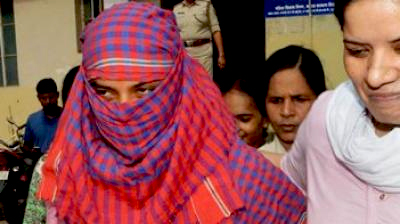Patna, Jun 28: The fake Class 12 'topper' Ruby Rai, who was arrested in Patna for bribing officials to get highest marks, told the investigators that she had asked her father to arrange for her to secure passing marks.

The Bihar State Examination Board Class XII Arts topper was taken into custody by Patna Police's Special Investigation Team soon after she failed the re-test.
Rai a student of Vishnu Rai College, who had achieved infamy after describing political science as "prodikal science" soon after the declaration of the Class XII results, was asked about a dozen questions from the syllabus by a seven-member expert committee of the board.
Re-exams were ordered after she in a TV interview had said political science, a subject she virtually aced, teaches cooking.
Rai appeared before the expert committee constituted by the board to answer questions. The panel cancelled her result after the review.
In the re-test, Ruby Rai reportedly wrote only one line “Tulsidasji, Pranam” (salutations Tulsidasji) when asked to write an essay on the Hindi saint poet, claiming that she forgot what she studied.
BSEB chairman Anand Kishore said that she was not even able to reply to a sample question.
Patna special SP Manu Maharaj said, “The arts topper was very forthright in accepting that she did not deserve to be a topper. She had expected second division at best. She now blamed her guardians and Vishun Roy College principal Bachcha Rai for making her topper.”
Rai had secured 444 marks out of 500 in the Arts stream. However, on camera she did not even appear to know the number of subjects in her course.
The BSEB earlier on June 4 cancelled the results of two toppers, including Sourabh Shrestha, of the Intermediate (Science) examinations after they failed to prove their merits in a re-test.
Meanwhile, during questioning the private assistant (PA) of former BSEB chairman Lalkeshwar Singh revealed that Rs 15 lakh was charged for declaring toppers through dubious means.
The PA, Vikash Chandra, further revealed that a sum of Rs 10 lakh was charged from a failed student to give them pass certificates, he said.
Singh, his former JD(U) MLA wife Usha Sinha, Vishun Roy college secretary-cum principal Bachha Rai and nearly a dozen others have been arrested in the degree racket case.





Comments
Our so called \PM\" & \"HRD\" can get their Degree certificate then why not poor citizen..??"
effect of Jungle raj... please vote for RJD.
People doesn't need Modi Govt which is working hard towards better india.
come guys...
It is better to conduct retest on all students....
Add new comment